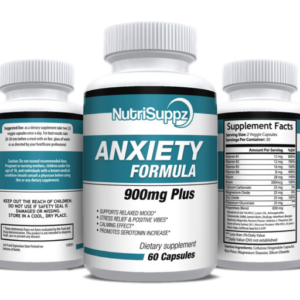14 Jun My Silent Struggle: Navigating Anxiety in My 20s
My Silent Struggle: Navigating Anxiety in My 20s
I had always been a high achiever. In high school, I was the valedictorian, captain of the debate team, and a volunteer at the local animal shelter. By the time I entered college, I was confident that my drive and determination would carry me through. But as I approached my senior year, the pressures began to mount.
It started subtly. I found myself waking up in the middle of the night, my mind racing with thoughts about my upcoming exams, my uncertain future, and my mounting student loans. At first, I brushed it off as normal stress. But the sleepless nights became more frequent, and soon, I was struggling to get through the day without feeling exhausted and on edge.
One crisp autumn morning, while walking to my economics class, I felt it for the first time. My heart started to race, my chest tightened, and my vision blurred. I felt dizzy, like the world was spinning out of control. I clutched my books tighter, trying to steady myself, but the feeling only grew stronger. I found a bench, sat down, and tried to catch my breath. Minutes felt like hours until the wave of panic finally subsided. I didn’t understand what had just happened, but I was too scared to tell anyone.
As the weeks went by, the panic attacks became more frequent. They struck without warning—in the middle of a lecture, during study sessions at the library, even while out with friends. I began to withdraw. I skipped classes, avoided social events, and spent more time alone in my apartment. My grades started to slip, and my once vibrant social life dwindled.
My friends noticed the change. “Hey, are you okay?” my roommate, Sarah, asked one evening. “You’ve been really distant lately.”
I wanted to open up, to explain the overwhelming fear and anxiety that had taken over my life, but I didn’t know where to start. “I’m just stressed about school,” I said, forcing a smile. “I’ll be fine.”
But I wasn’t fine. The anxiety continued to build, wrapping around me like a suffocating blanket. Simple tasks became monumental challenges. Grocery shopping felt like navigating a minefield. Attending lectures was an exercise in endurance. My once clear and focused mind was now clouded with doubt and dread.
One particularly rough day, after a failed attempt to attend a study group, I found myself sitting on the floor of my bathroom, tears streaming down my face. I felt utterly defeated. In that moment, I realized I couldn’t keep living like this. I needed help.
The next morning, I made an appointment with the campus counseling services. The idea of talking to a stranger about my struggles was terrifying, but I knew I couldn’t do this alone. My first session was a blur of emotions—fear, relief, and a glimmer of hope. My counselor, Dr. Martinez, was kind and understanding, assuring me that what I was experiencing was common and treatable.
Dr. Martinez introduced me to Cognitive Behavioral Therapy (CBT), a process that involved identifying and challenging the negative thought patterns that fueled my anxiety. It wasn’t easy. Confronting my fears head-on was exhausting, but slowly, I began to see progress. I learned techniques to manage my panic attacks, like deep breathing and grounding exercises. I started journaling my thoughts and emotions, which helped me gain perspective and control.
I also began to open up to my friends. I explained my struggles with anxiety, and to my surprise, they were incredibly supportive. Sarah even shared her own experiences with anxiety, something I had never known. With their encouragement, I started to rebuild my social life, one small step at a time.
I made lifestyle changes that supported my mental health. I adopted a regular exercise routine, which helped reduce my stress levels. I prioritized sleep, established a consistent bedtime routine, and avoided caffeine. I also found solace in creative outlets like painting and writing, activities that allowed me to express myself and find peace.
As graduation approached, I felt a mix of apprehension and excitement. The future was still uncertain, but I no longer felt paralyzed by fear. I had learned to manage my anxiety and had built a strong support network. My journey was far from over, but I was ready to face whatever came next with resilience and hope.
I walked across the stage on graduation day with a sense of accomplishment and pride. I knew that the path ahead would have its challenges, but I was no longer alone in my struggle. I had found my voice, my strength, and a newfound understanding of myself. And with that, I was ready to embrace the future.


No Comments